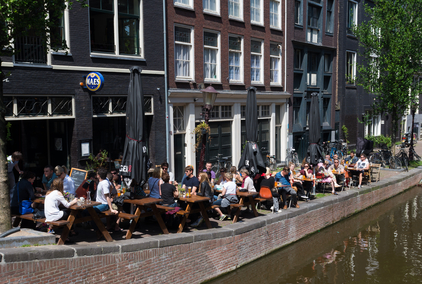Graduates are squeezing out low-skilled in city jobs: research
 Having a highly-skilled population may benefit city economies and generate jobs in cafes, restaurants and cultural institutions, but those jobs are increasingly being done by the high-skilled themselves, according to research published in Tuesday’s Volkskrant.
Having a highly-skilled population may benefit city economies and generate jobs in cafes, restaurants and cultural institutions, but those jobs are increasingly being done by the high-skilled themselves, according to research published in Tuesday’s Volkskrant.
Every 100 high-skilled workers generates 10 additional low-skilled jobs but low-skilled workers are being squeezed out, according to researchers at Groningen University.
This is partly related to the large number of students who take jobs in bars and cafes to help pay for their studies. But university graduates are also working below their academic level because they have not found work in their specific spheres of expertise, the researchers say.
‘One argument used by cities who try to attract highly-skilled workers is that the low-skilled benefit from their arrival,’ researcher Roderik Ponds told the Volkskrant. ‘But in cities with a highly-skilled population like Amsterdam, Utrecht and Groningen, unemployment is high among the low-skilled.’
The researchers looked at the developments in 57 cities between 1999 and 2013. While a rise in high-end workers did boost employment in the hospitality industry, for example, there was no corresponding reduction in unemployment levels among the low-skilled.
Thank you for donating to DutchNews.nl.
We could not provide the Dutch News service, and keep it free of charge, without the generous support of our readers. Your donations allow us to report on issues you tell us matter, and provide you with a summary of the most important Dutch news each day.
Make a donation